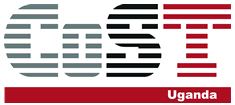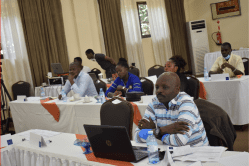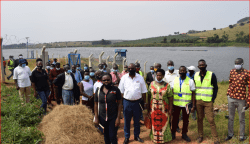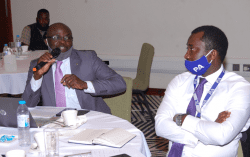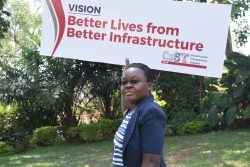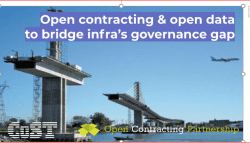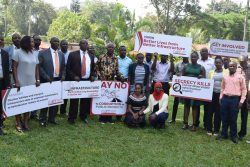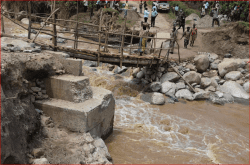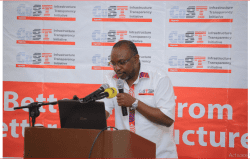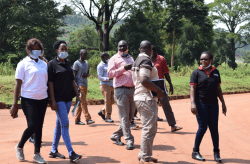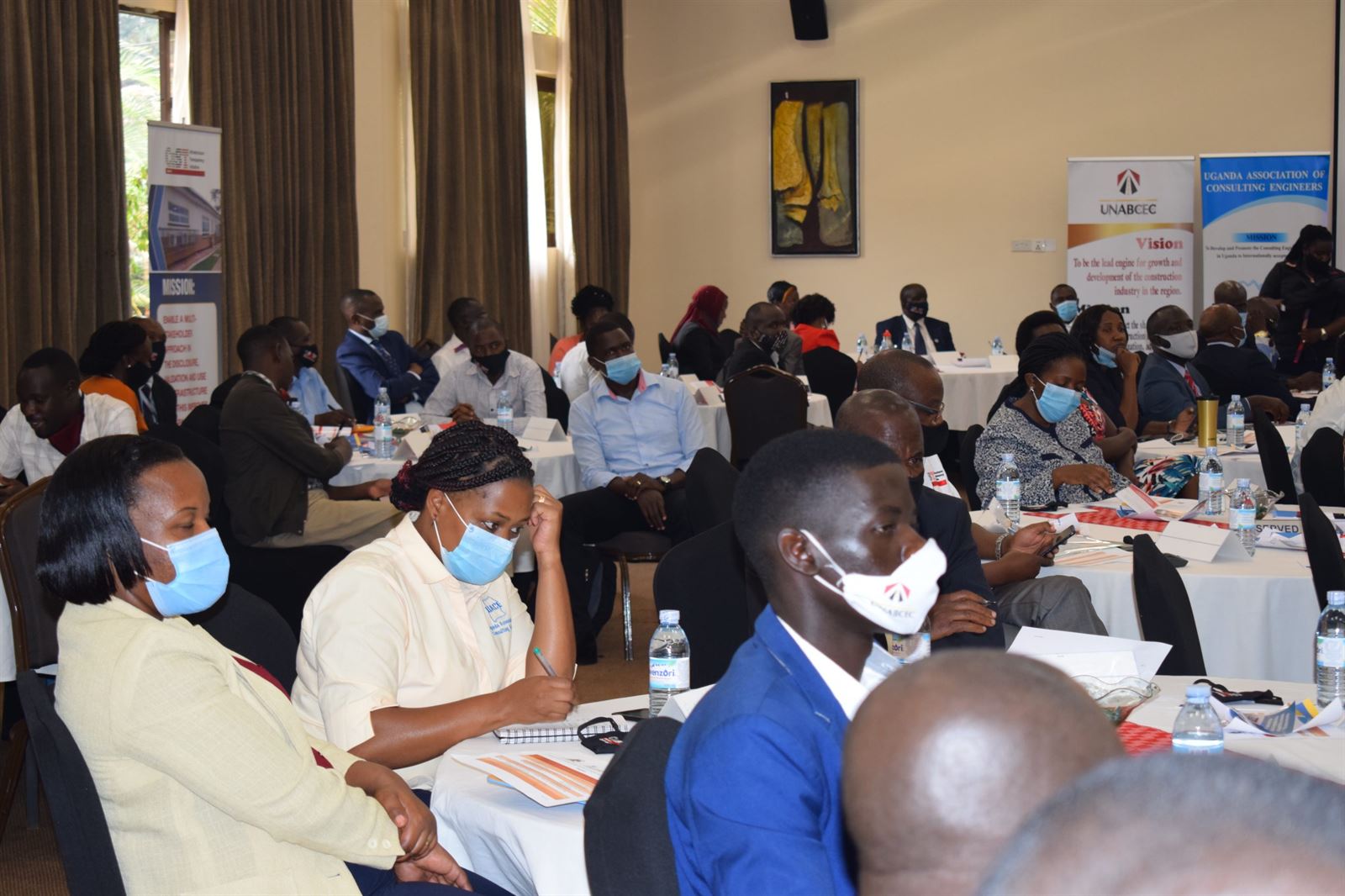
May 21, 2021 1:53 pm
CoST Uganda published its 4th Assurance Report titled Ray of Sunshine, A Report of the 4th Assurance Process in Uganda on, 10th February 2021. The 4th Assurance process focused on 23 public infrastructure projects from eight Procurement Entities. The Assurance process was spread through the sectors of Education, Health, Water and Environment, Works and Transport. From the 4th Assurance process, we note that, the culture of transparency is taking root in the country, with the CoST Assurance process working as a learning tool to consolidate disclosure practices. Although involving different entities in each process, the national average levels of disclosure have improved in the year 2020.
Disclosure across the 23 projects was at an average of 61.5% an increase of 19.5% from the 2019 3rd Assurance process which was at 42%. In regards to disclosure trends, Proactive disclosure increased from 43 to 54% whereas reactive disclosure tremendously increased from 42% to 69%. Twenty two of the Assured projects cost approximately Uganda shillings 4.6 Trillion this is USD 1,272 Million. Loans taken were 62%, whereas GoU contributed 25% and grants amounted to 12%.
Despite the increase in disclosure at other phases of project delivery, transparency on tendering information is still low with 52% of the data to establish participation of local consultants and 43% for contractors was not disclosed. Of the 23 projects, supervising contracts given to local firms were 9% whereas 30% went to foreign firms and 9% were joint ventures. On the works contracts, 35% went to local contractors while 22% went to foreign firms and there were no joint ventures. From these findings, the performance of the local businesses in infrastructure delivery needs to be enhanced in the interest of promoting local content.
The 4th Assurance report was launched by the Minister of Works and Transport Gen. Edward Katumba Wamala, who is also the Champion of CoST Uganda. In a speech read for him by the Engineer In Chief, Eng. Samson Bagonza, the Minister recommitted the Ministry’s stake and interest in seeing more businesses engaging with integrity, and that more assessments on public infrastructure projects kept the Government focused on delivering better value infrastructure. The Minister also indicated that the Ministry attached a lot of importance to CoST Uganda’s findings and recommendations and committed to doing everything possible, within the Ministry’s means, to make improvements in the planning, design, procurement and management of infrastructure projects by promoting the Open Contracting for Infrastructure Data Standard (OC4IDS).
”My Ministry will work with CoST Uganda and all other stakeholders to close the gaps identified in the projects assured. The NRM Government fully supports the principles of fair business practices and transparency when handling matters that concern the public and indeed public resources. There is no doubt therefore that the entire Government leadership up to the highest level is in support of independent monitoring of public infrastructure projects, as long as the findings and recommendations are used for purposes of continuous improvement.” Hon. General Katumba Wamala, MoWT Affirming the relevance of the Assurance process.
In a statement of action on the 4th Assurance recommendations, the Office of the Prime Minister as the leader of Government business in Parliament and Coordinator of Government programmes and policies, noted the concerns and received the recommendations from the 4th Assurance Report, and expressed commitment to take action on the recommendations. The OPM expressed concern that, until now, Public officials still conceal the otherwise regarded public information, that is meant to inform various stakeholders to guide in policy decisions. This is despite global and national efforts and measures to push for easier and faster access to public information. And that despite the available legal frameworks within Government, and the invested efforts in monitoring, evaluation and learning across the various sectors, it has been found that Government has continued to record massive delays in procurement, cost overruns, challenges in construction quality management etc. And the application of the ESHS requirements is still low.
In his remarks, Engineer in Chief, Eng. Samson Bagonza asked CoST to prepare annual reports on the sector in regards to transparency and these would be discussed across all sector review meetings. CoST assurance activities have not only improved the disclosure of construction project information but also brought forward construction industry issues that need to be addressed if the construction industry is to be strengthened and developed. CoST Uganda should prepare annual reports for circulation among key stakeholders and also present the reports at relevant Annual Sector Review Workshops. Engineer In Chief, MoWT, Samson Bagonza at the Launch of the Assurance report.
The 4th Assurance Process recommendations;
- Adoption of the Open Contracting for Infrastructure Data Standard (OC4IDS) as part of the GPP and to develop a standard disclosure template, issue disclosure guidelines for infrastructure projects.
- MoFPED should fast track development of the Electronic Procurement Portal and ensure it enables access to information for the public.
- PPDA should amend the Standard Notice of Best Evaluated Bidder to provide for the estimated value of the works made by the Accounting Officer at the initiation of the procurement. This is important for confirmation that the contract price of the Best Evaluated Bidder is below the Accounting Officer’s estimate in accordance with the PPDA Act, 2003.
- PPDA and the Local Content Monitoring Committee are encouraged to conduct quarterly monitoring of the implementation of the local content and reservation schemes in accordance with the Local Content Guidelines. In addition, these guidelines should be turned into regulations and provide sanctions on noncompliance. PPDA and MoFPED should assess the efficacy of the guidelines annually.
- PPDA should require PDEs to publish the contract management plans on the PDEs websites and in related media so that the public and civil society can effectively follow up on the progress of projects. In addition, PDUs should ensure that they monitor the progress of contracts in accordance with the PPDA (Contracts) Regulations, 2014.
